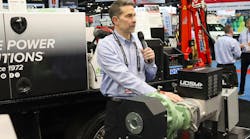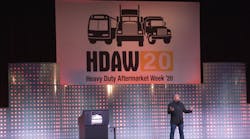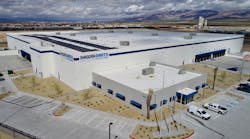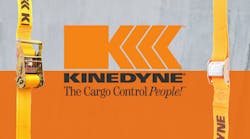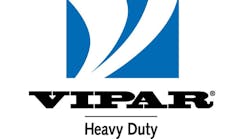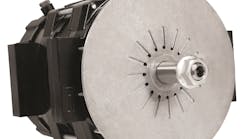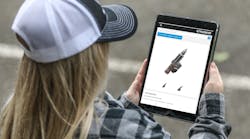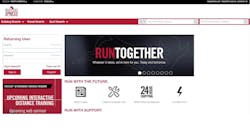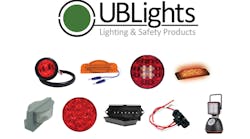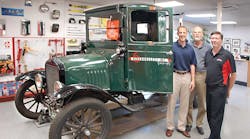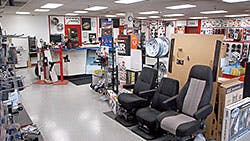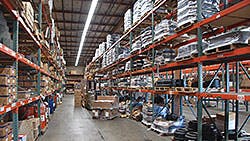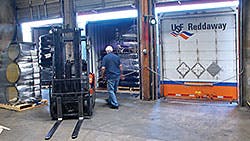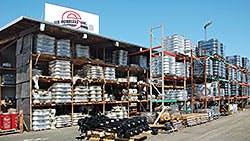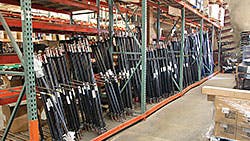One of the most common complaints at all levels of the commercial truck and trailer industry is attracting and retaining employees.
That’s especially true in the parts department, where product knowledge typically tops price as the primary reason parts customers do business with a particular company. Expertise at the parts counter doesn’t happen overnight. It takes time to be able to recognize a particular part and to accurately diagnose why it failed.
That’s why Six Robblees, a multi-location parts specialist headquartered in Seattle, Washington, is especially proud of its employees.
“Employee longevity has been a key to our success,” says Andy Robblee, president. “Some of our people have been with us more than 40 years. Many have 30 years’ experience or more. We as management value the relationships we have with our employees. That’s really what our business is all about. Our employees in turn develop relationships with customers. And it’s mutual with our customers.”
The company relies on those relationships to drive sales.
“Customers appreciate the personal service,” says Kevin Kartman, sales manager. “They often are willing to be placed on hold and wait until their specific Six Robblees rep is available—even though we have others who are ready to serve them.”
That operating philosophy has led the company to eschew some of the marketing techniques that are commonplace in many markets. For example, Six Robblees does not send out mailers. They prefer to build relationships.
“At one point, we had a sales guy ask us why we don’t do mailers,” Robblee says. “We explained to him that we had a choice. We could send out mailers, or we could pay you to make the sale. It was a short conversation.”
Six Robblees management for years has worked to develop a strong sense of teamwork and comradery throughout the company. Special events at the company are common, and the company has even sponsored fishing trips to Alaska. But one of the most effective tools for building teamwork and for Six Robblees a place where people want to spend their careers has been the company’s profit sharing program, Robblee says.
“We are a private company,” he says. “Unlike a public corporation, our world doesn’t revolve around meeting arbitrary numbers by the end of the quarter. We can set a long-term vision and direction for our company, and we do what it takes to meet our goals. That includes our profit-sharing program.”
The program is funded in large part by its participation in two buying groups—HDA Truck Pride for its truck and trailer parts and Ascot Supply Corporation for the tire service side of Six Robblees.
“HDA and Ascot both have programs that provide rebates,” says Neil Hendricks, vice-president of operations. “We take those rebates and put them into our profit sharing program. It’s really a major incentive for our employees. People recognize they have a stake in how our company performs. When the company makes money, they make money.”
Robblee points that it offers a benefit that a simple raise doesn’t. The money accumulates over the course of the employee’s career, something that may not happen if it gets deposited routinely in a checking account.
“Because of the profit sharing program, people who otherwise would not be able to retire are able to do so,” he says.
Paying benefits
The Six Robblees approach appears to be paying off. The family-owned company now has 22 branch locations, including new ones in Casper, Wyoming, along with Nampa and Twin Falls, Idaho.
“All of our stores are fairly small,” Kartman says. “They have a warehouse and parts counter.”
But adding up 22 “fairly small” stores generates some impressive numbers for the entire company, including 180 total employees, 33 outside sales reps, and 80 parts delivery trucks (a combination of International 4300s for the heavy loads and F-150s for lighter deliveries).
The company traces its growth back to a very important invention—the wheel.
“Everything we do revolves around the wheel,” Robblee says. “From there, the outside sales team asks “what else can we do for you?’ Wheels have served as the springboard for our entire parts business—wheels, brakes, wheel ends.”
Nothing new
The importance of wheels at Six Robblees is nothing new. Compared with trucks and trailers, there are not a lot of things to go wrong with bicycles, but tires and wheels are two of them. From the start, Six Robblees has been helping its customers with wheels.
The company started in 1913, by three brothers. Jim Robblee was a sheet-metal worker. Bill was a locksmith, and Herb repaired bicycles.
Because of Jim’s metal fabricating skills, the company began manufacturing custom wheels. But automotive wheels did not resemble those of today—they had more in common with bicycle wheels. Between Herb’s skill at tuning the spokes of bicycle wheels and Jim’s ability to form metal, the company developed a reputation at the end of World War I for its custom wheels—particularly among the Indy race car teams that passed through the Seattle/Tacoma area as part of the sport’s new Indy race car circuit.
For years, the company stayed close to the wheel. But in the 1980s, Andy’s dad branched out into a variety of related ventures, including tire shop supplies, as part of a desire to acquire other companies.
“Our acquisitions had to fit one of the three spokes,” Robblee explains. “Either the heavy-duty truck (Class 6 trucks or heavier), small trailers (under 26,000 pounds GVWR), or tire supply.”
In the 1980s, the company began a period of rapid growth. This provided Six Robblees with the financial strength to acquire other companies in related businesses.
“In 1990s, we bought four companies in the same year,” Robblee says. “We bought four more a couple of years ago.”
Going green
Six Robblees has been giving considerable thought to reducing its energy costs—especially in Alaska where electricity is exceptionally expensive.
“We have been installing solar panels in Fairbanks,” Hendricks says. “It actually makes more sense to install solar in Fairbanks than in Phoenix because of the price of electricity. In January, when it’s dark most of the time, we have to pull from the grid. But the panels work so well that we are net generators of electricity for most of the year.”
Six Robblees also has begun converting its fleet of local delivery trucks to run on propane.
“Even with today’s lower fuel prices, propane still makes sense,” Hendricks says. “It costs about $6,000 to make the conversion. The guaranteed price of propane will be below that of gasoline. Even with the lower fuel economy of propane, the price differential between gasoline and propane makes propane a better choice. Plus, there are still some government incentives to make the switch. And we don’t worry about lack of propane infrastructure. Dual fuel capability means that you don’t have to totally commit the truck to propane. The truck is able to burn both.”
Still relining brakes
Six Robblees has been able to continue offering relining services for its customers, despite the competitive environment.
“The local brake relining shop is going by the wayside,” Hendricks says. “There used to be 10 in the state of Washington. Now there are only three.”
The company operates two brake relining shops, one in Spokane and another in Twin Falls, Idaho. While both offer riveted relined brakes, the Spokane shop also offers bonded brake linings.
Meritor offers a state-of-the-art relining operation in Plainfield, Illinois, that produces like-new brake shoes. However, there are a couple of reasons why a customer would come to Six Robblees to have their brakes relined.
“We reline a lot of Meritor shoes,” Hendricks says. “One reason: we reline brakes that Meritor does not offer. The second reason is that we can reline shoes right away. For some of our customers, that’s important.”
Looking ahead
It is extremely difficult for a family-owned business to operate continuously for more than a century. But three years into its second century, management at Six Robblees is confident that they company—and the wheel—will be around for many more years.
“Probably our biggest challenge is making sure we have solid employees. We have been around for quite a while and are operating in an era where age is not necessarily admired. We are determined to continue to grow. Our goal is to reach $100 million in annual sales. We plan to do that possibly with additional acquisitions—but certainly with organic growth. But to do that, we will need to attract a new generation, one that values longevity. We have accomplished a lot in 100 years. We will need people who will build on that.”
Which is one reason to make employees feel like every day is Veterans Day.
For more information check out Six Robblees at sixrobblees.com
